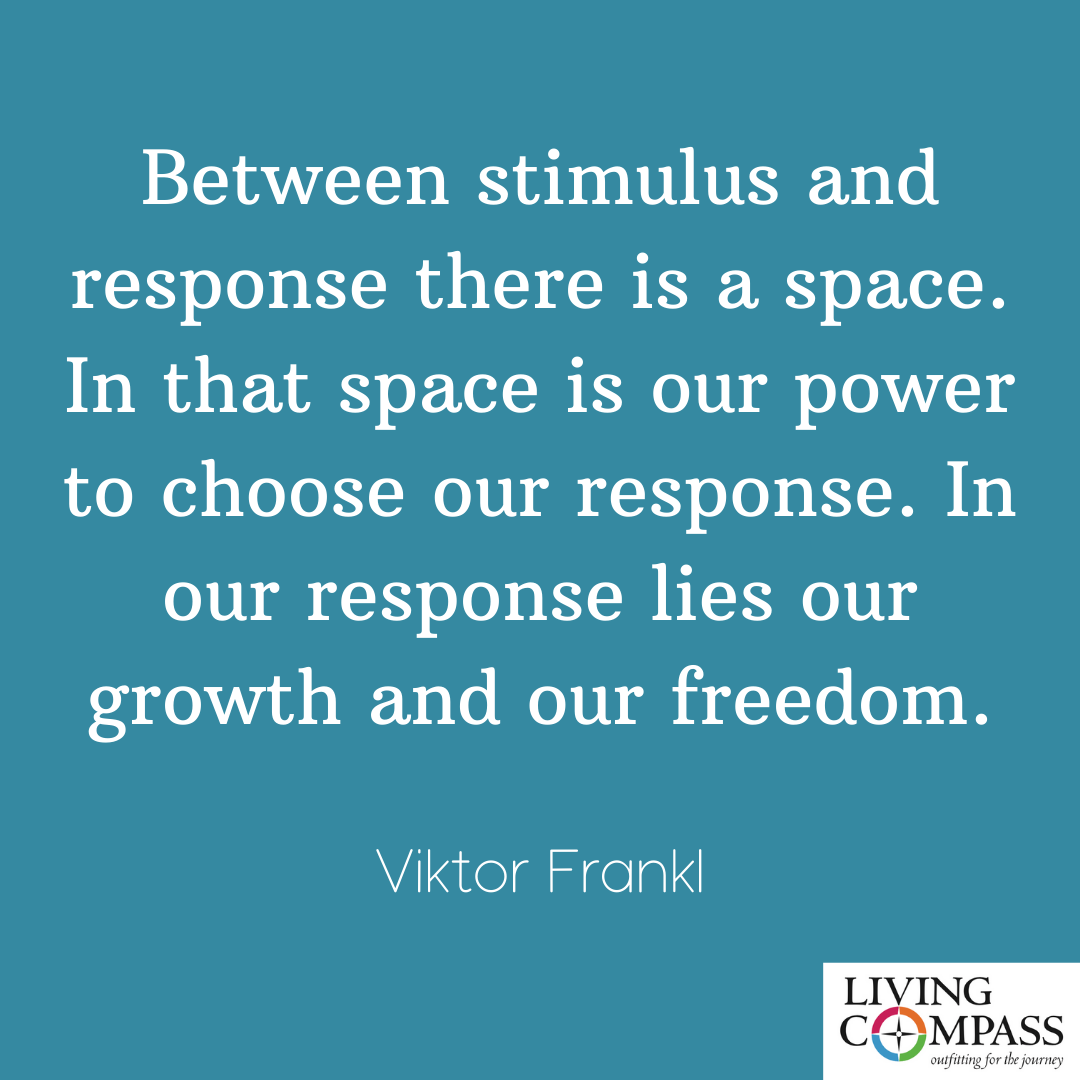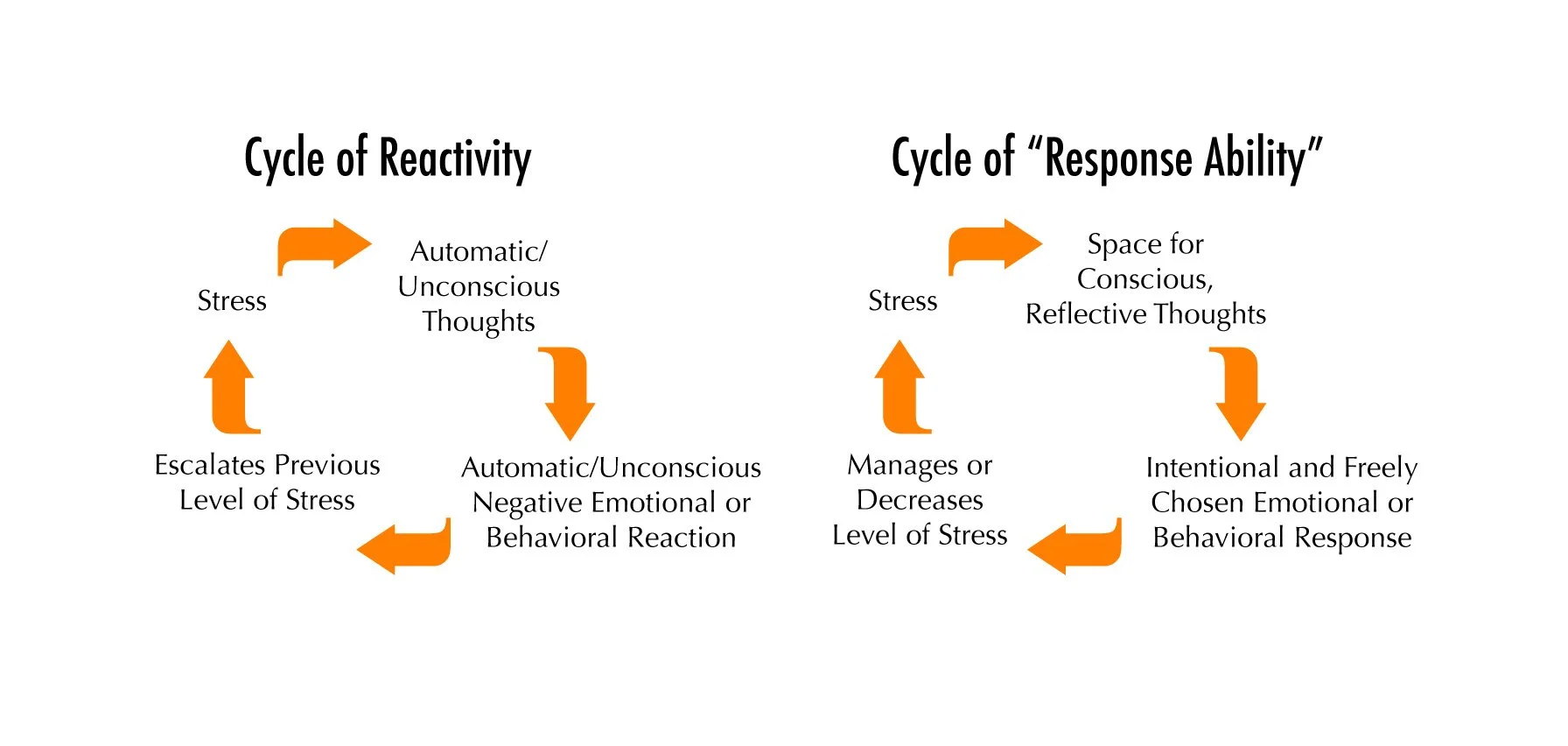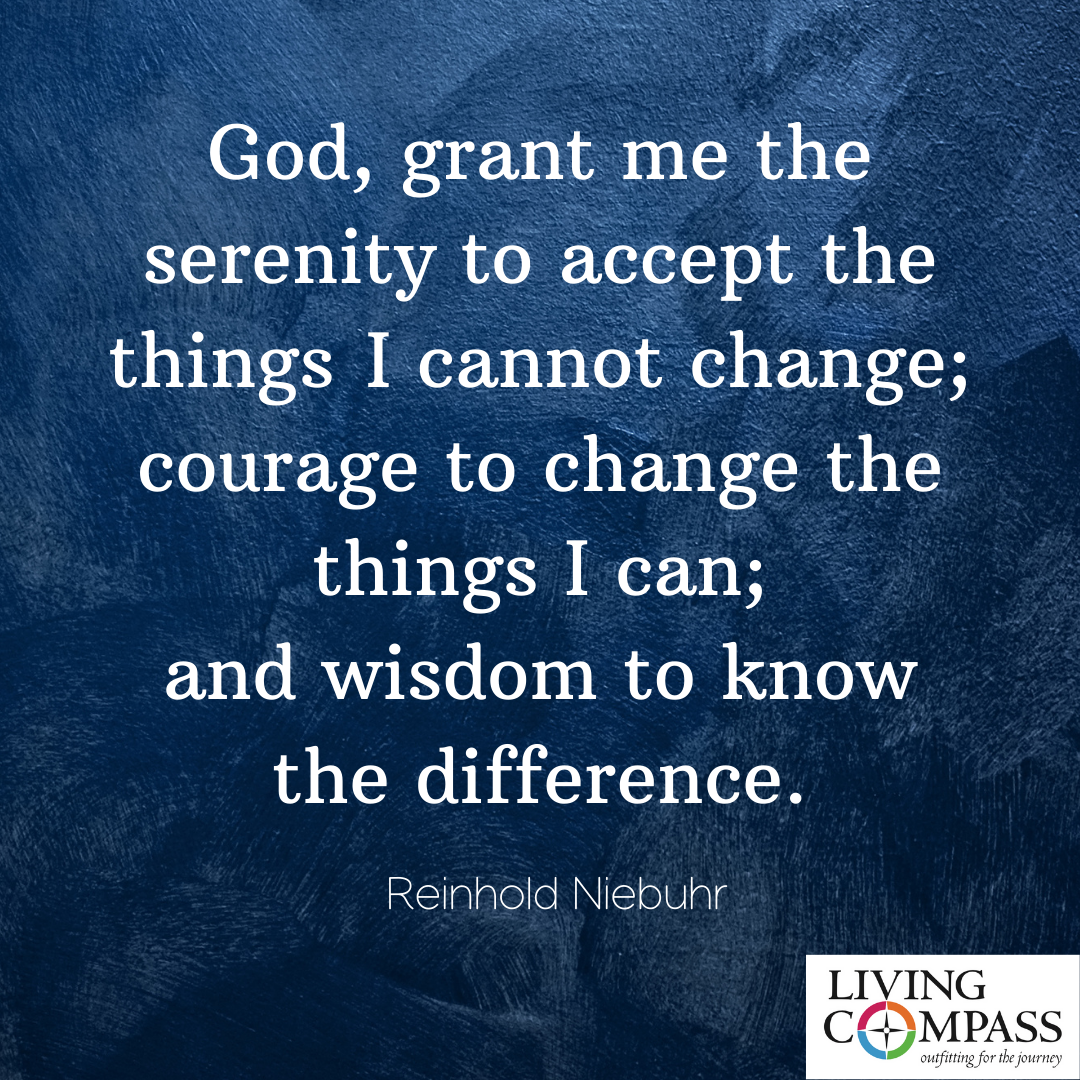Choosing to Be Response-able
There have been occasions during this pandemic when I have been less response-able than I wish I had been. Note that I wrote response-able, not responsible. It’s the former, not the latter, that I have struggled with on occasion.
I define response-able as the capacity to respond calmly and thoughtfully to others even when under pressure, rather than mindlessly reacting, in a way that is rarely helpful. Stress significantly increases the chances of our being reactive, and there has been no shortage of pressure in most of our lives and our world lately.
There is a significant difference between reacting and responding to stress. When we are reactive, we often feel out of control and then typically blame someone else, or something other than ourselves, for our reactivity. “If you hadn’t said that, I wouldn’t have reacted that way,” is a common excuse—certainly one I have used myself at times. Responding is different than reacting in that it involves our being able to pause and then choose the response we wish to make. This ability to choose our response is what I mean by response-ability. A person who is self-reflective and consciously trying to develop a sense of emotional wellness will, when they find themselves in a stressful situation, slow down and realize that they have various responses from which they can choose.
I created a diagram a few years ago (see below) to show the difference between reactivity and response-ability. Note that either style can reinforce itself and create a cycle that builds either constructively or destructively.
Viktor Frankl, an Austrian psychiatrist, wrote a highly respected book called Man’s Search For Meaning about his experience of surviving in a concentration camp during World War II. The central point of this profound book is that no matter how bad things are, nothing can ever take away the fact that one still has a choice about how we will respond to what is happening. “Between stimulus and response there is a space. In that space is our power to choose our response. In our response lies our growth and our freedom,” says Frankl. He understood the critical distinction between reacting and responding. As he states, responding is a choice, whereas reacting is something we do immediately with little conscious thought or intention.
The first step for me to be more consistently response-able is to remember that response-ability is a choice I can always make. Recognizing this means that if I do get reactive, I can more readily acknowledge that I am being reactive and break the cycle right away. Taking responsibility for our reactivity, and then apologizing goes a long way to getting an interaction back on track.
Stress happens, and there is a lot of it right now. Response-ability happens, too. Especially when we remember that choosing to be response-able is what will, in the words of Viktor Frankl, greatly enhance “our growth and our freedom.”
Subscribe Now to Weekly Words of Wellness:
Click the button below to signup for the e-mail version of Weekly Words of Wellness. This weekly article can be shared with your community electronically and/or used for group discussion.
You can unsubscribe at any time.





